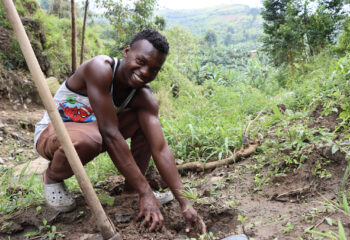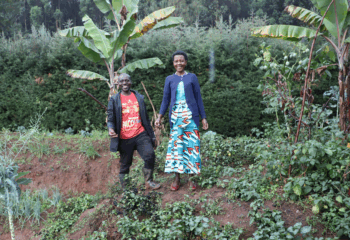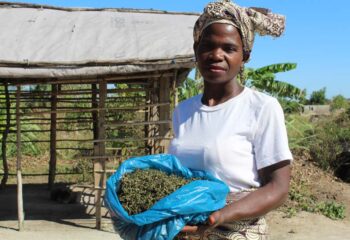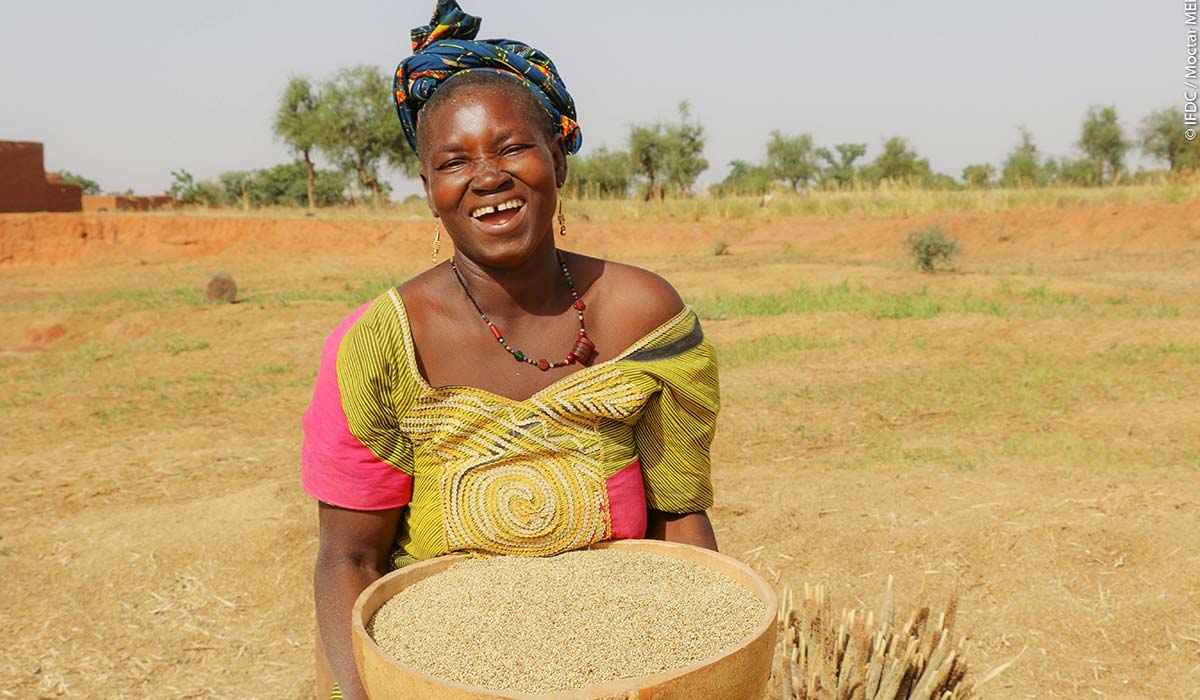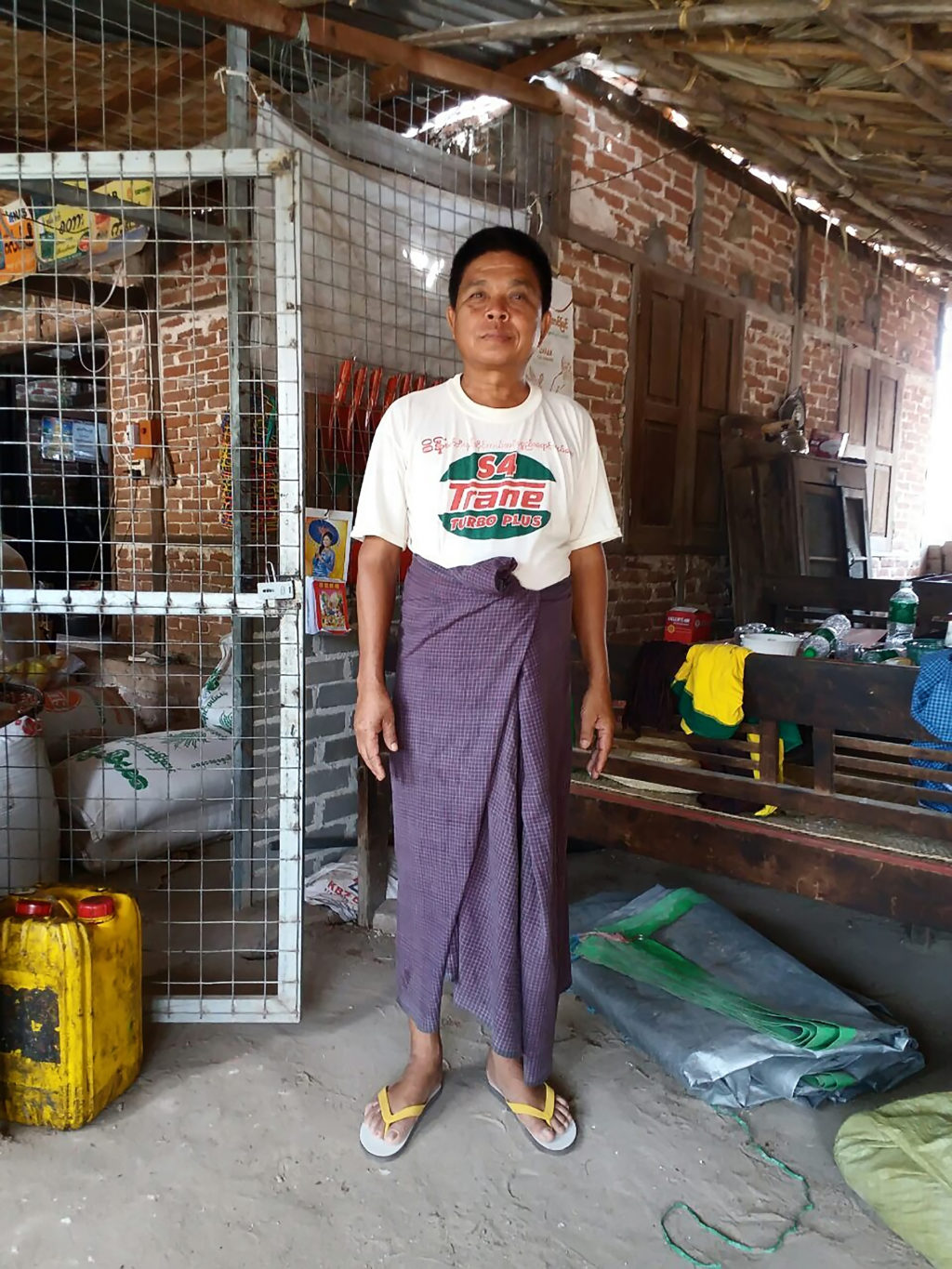
U Myint Aung is a farmer in the Kyauk Phu village of Taungtha township in Myanmar. He is a customer of U Nyi Nyi Naing, an input and service provider (ISP) also involved with IFDC’s Dry Zone Agro-Input and Farm Services (DZ) project, funded by the Livelihoods and Food Security Trust Fund (LIFT). Through this connection, Myint Aung attended farmer training sessions, a demonstration plot on plant spacing and high-yielding groundnut varieties, and field day activities.
After attending farmer training by IFDC, Myint Aung gained knowledge about high-yielding seed varieties, conservation agriculture practices, and the safe and effective use of crop protection products (CPPs), among other topics. He is adopting the new practices on his farm.
Myint Aung grows green gram. Before, he harvested green gram plant residues for cattle feed and burned other plant residues. Now, he plows them under the soil for green manure. He also makes compost from farmyard manure and plant residues.
Before the training, Myint Aung asked the tractor operator to plow the soil deeply. Now, he asks for shallow plowing as minimum tillage for soil conservation.
As an ISP customer, Myint Aung learned about soil pH and how to balance it using gypsum. He previously used only urea but now uses balanced fertilizer N:P:K+TE (micronutrients). As a result, his farm’s soil fertility is improving, and its soil pH is becoming more balanced. Thus, he can reduce chemical fertilizer use and make effective use of organic fertilizers.
Myint Aung gained knowledge about the safety hazards associated with handling chemical pesticide, fungicide, and herbicide after attending IFDC’s farmer training. Now, he uses protective gear such as a mask, gloves, rubber boots, and a spray suit.
His local ISP offers a wide range of new high-quality agro-inputs, including organic fertilizers and CPPs, battery-operated sprayers, farm tools, and drip and sprinkler irrigation, to purchase with cash or on credit. This saves him time and transportation costs.
IFDC training taught him about crop budgeting. He monitors the cost of production, such as land preparation, seed, fertilizer, labor, CPPs, foliar, etc., and the income from selling the produce. So, he knows his profits and losses, and he can evaluate the costs and benefits of his farm business.
When purchasing agro-inputs, Myint Aung now notes the manufacturer and expiration date, reads the instructions in Burmese, and understands the ingredients because of the lessons from the farmer training programs.
He receives farm advisory services from his local ISP and Department of Agriculture (DOA) agents. They’ve taught him how to effectively control pests and diseases. He’s learned how to choose the correct pesticide according to the pest, the appropriate fungicide for specific plant diseases, and the proper time for spraying.
After attending demonstration plots and field days, Myint Aung began using high-yielding seed varieties instead of local varieties and a better planting system. For example, he altered the plant spacing of his groundnuts from 18 x 18 inches to 14 x 14 inches. This increased the plant population and yield and made weeding easier. By changing variety and spacing, his yield increased from 20-30 baskets per acre to 40-60 baskets per acre.
With his improved skill set and increased income, Myint Aung is very thankful to the DZ project and looks forward to improving his agricultural knowledge further.

